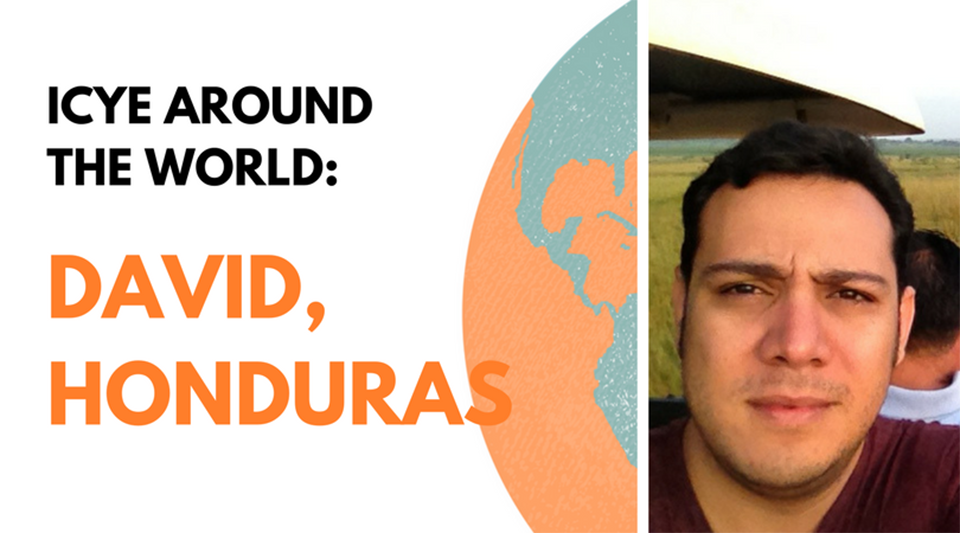In this series we catch up with members of the International Cultural Youth Exchange offices around the world. This time we chat with David Baires from ICYE Honduras.
Hey! Could you introduce yourself and your job in ICYE Honduras?
My name is David Baires, I am the Excutive Director of ICYE Honduras. I have been working with ICYE since 2003 – after my wonderful experience as a volunteer on 1998–1999 in UK. I am responsible for overall management of all the programmes and organisational aspects in ICYE Honduras.
What is the most rewarding about your job?
Being a volunteer is a very rewarding action, which helps people with special needs and gives meaning to one’s life. It is very special to see the changes that ICYE’s experience makes on young people, making them mature, global
citizens who care about others. Being ICYEer means a lot to me and I am sure that our work is a contribution of a grain of sand to achieve a better world.
‘‘Being ICYEer means a lot to me and I am sure that our work is a contribution of a grain of sand to achieve a better world.’’
ICYE Honduras recently received a Finnish volunteer Jonna to work in Honduras as a long-term volunteer. Could you tell us about her project?
Our long-term Finnish volunteer Jonna will be doing a voluntary service during ten months in a non-profit organisation with the main aim of providing entrepreneurial consultancy to micro, small and medium-sized enterprises, with the purpose of generating an economic impact and improving the dynamics of business in the region of Lempa, where Lencas, one of the biggest ethnic-indigenous groups of Honduras, live.
In what kind of projects will the other foreign volunteers be volunteering?
The other long-term international volunteers from Austria, Ecuador, Slovakia and Switzerland will be doing voluntary services in different projects that work with various vulnerable populations and social causes of Honduras. They will be in non-profit organisations working, for example, for conservation of the environment, provision of education to the indigenous youth and children with special needs and provision of free cancer treatment to children from low economic resource families.
How big a role does food play in Honduras, for example when visiting a Honduran family?
Food plays a big role in Honduras as it is intrinsic in our culture. Honduran cuisine is very much varied as it contains elements that come from our indigenous ancestors, Spanish traditions brought during Colonial times, creole customs, and African-descendant cooking styles. When visiting a Honduran family, you’ll most likely be invited to eat something and most likely the dish will be served with fresh tortillas, as well as enjoying a good cup of coffee.
Your greetings to a person who is planning to volunteer in Honduras?
Come and have a unique and authentic intercultural learning and volunteering experience in the heart of Central America! Honduras is a thriving nation with captivating characteristics such as ethnic diversity, tropical nature and pristine beaches, several national parks and historical monuments. Discover the greatness of this nation with welcoming people, and experience various ways of being and living in its different regions embracing diversity!
Text: Kaisa Rahko, photo: from album of David Baires
Juttu on julkaistu MaailmanVaihtoa 2/2017 -lehdessä.

